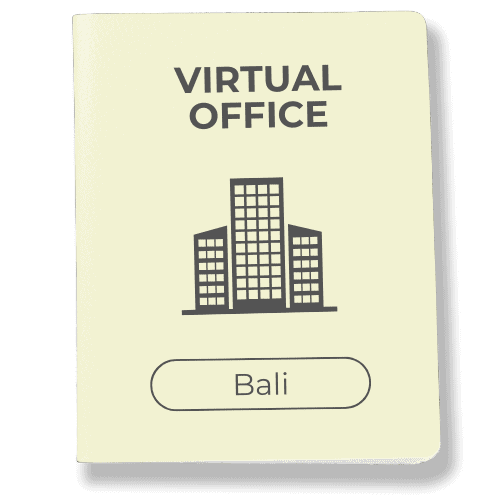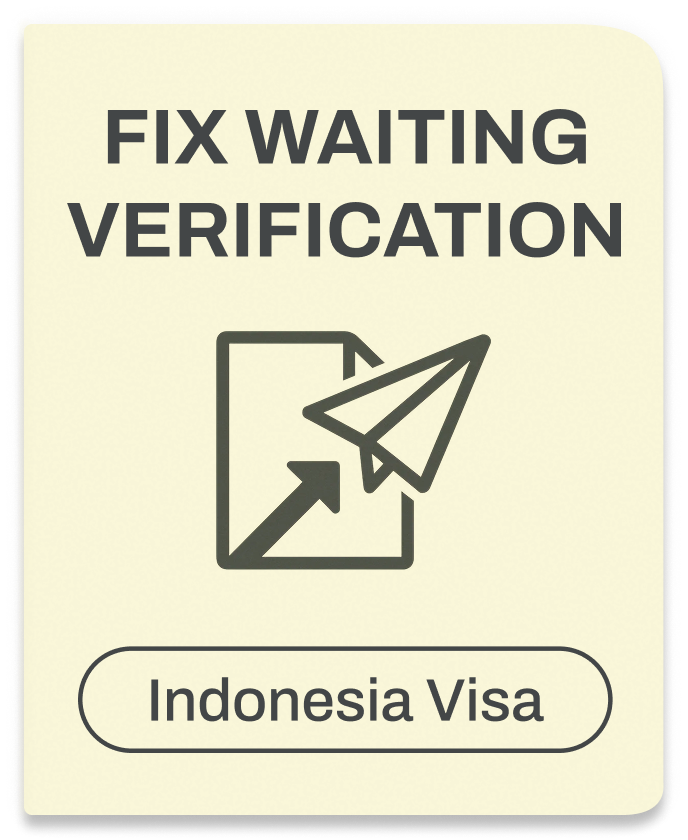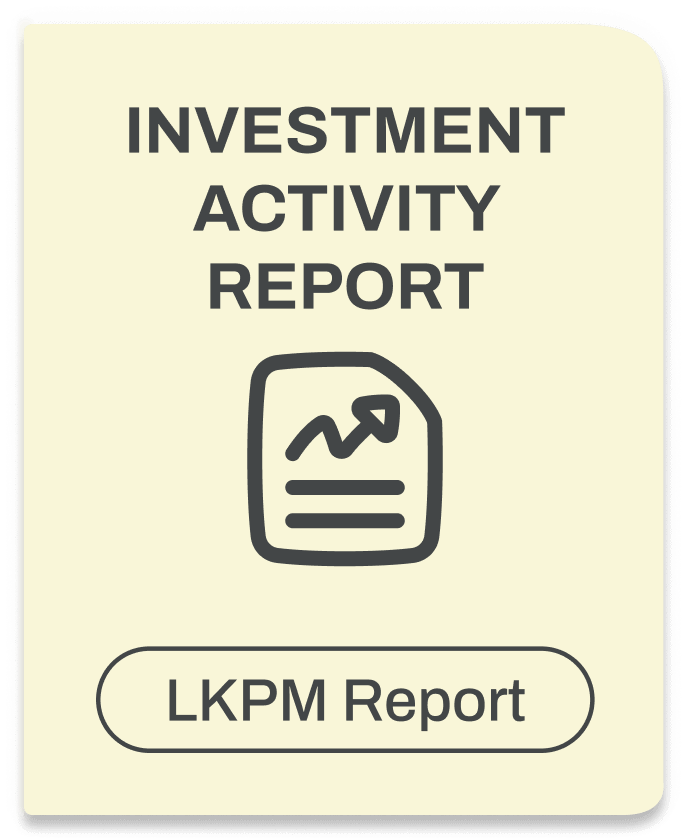How to Move to Bali, Indonesia 2025 Guide

Dreaming of moving to Bali in 2025? You’re not the only one. More and more people are trading in city noise for ocean breeze, work stress for tropical sunsets, and long commutes for scooter rides through rice fields. But before you book that one-way ticket, there are a few important things you need to know, especially when it comes to visas, cost of living, and where to live.
Bali isn’t just an island paradise; it’s part of Indonesia, meaning national rules, immigration requirements, and cultural customs all come into play. Whether you’re planning to retire, work remotely, or just try something new for a few months, you’ll need the right visa, a solid budget, and a plan for your new lifestyle.
In this guide, we’ll walk you through everything step-by-step: the types of visas available, how much life really costs in Bali, what to pack, where to live based on your goals, and even what to expect when you land. Let’s make your big move simple, legal, and stress-free.
How to Relocate to Bali: A Simple Guide for Your Big Move
Thinking about starting a new life in Bali? You’re not alone. Each year, many foreigners trade their busy routines for rice fields, sunshine, and a slower pace. But before you hop on a plane, there are a few things to know about how to make the move smooth and stress-free.
Let’s walk through the steps, one at a time.
1. Do Your Homework About Bali and Indonesia
First things first: get to know the country. Bali is part of Indonesia, a big island nation made up of over 17,000 islands. While Bali has its own unique charm and local culture, it still follows national rules. Things like visas, laws, and customs are managed by the Indonesian government.
Start reading up on:
- Different areas in Bali (like Ubud, Sanur, or the eastern side of the island)
- Local traditions and western standards (what’s similar and what’s different)
- What daily life is really like for foreigners living in Bali
✨ Pro tip: Talk to expats who have already made the move. Their advice is golden.
2. Pick the Right Visa
Next, you’ll need a visa that matches your plans. If you’re coming to work, study, retire, or just relax, there’s a visa for that.
Here are some types you might consider:
- Long term visa: for those staying more than a few months
- Retirement visa: for those 60+ who want peace and palm trees
- Limited stay permit (KITAS): for working legally or joining a family
The process may take time, so it’s best to plan ahead. Using a visa agent is common, especially if you’re new to Indonesian paperwork.

🔎 Still deciding? A longer visa gives you more time to explore without pressure.
3. Plan Your Budget
Moving to a foreign country is exciting, but it can get pricey fast if you’re not prepared. Start by figuring out the cost of living in Bali. It’s much lower than in other countries, but it depends on your lifestyle.
Some things to budget for:
- Rent (monthly or yearly)
- Food, street food, and groceries
- Transportation (most people ride scooters!)
- Visa fees and renewals
- Health insurance and visits to the doctor
And don’t forget the extras, like buying personal effects, getting a money changer, or renting an air conditioned place.
4. Pack and Prepare for the Island Life
Before your flight, it’s time to pack! Think about what daily life will be like in a beautiful island. Some things are easier to find than others.
Bring:
- Lightweight clothing (it’s warm and humid)
- Medications and documents
- A few comfort items from home
Leave behind things you won’t use, heavy coats, bulky gadgets, or tons of shoes.
5. Land, Settle, and Start Exploring
You’ve landed, now what? First, get your local SIM card, settle into your rental, and learn the basics of the neighborhood. Say hi to the friendly locals, try some rice terraces walks, and don’t be shy about asking questions.
To make your new home feel like home:
- Join a course or workshop to meet people
- Explore job opportunities if you’re planning to work
- Learn simple Bahasa Indonesia phrases
Many people come for a few months and end up staying for years. It’s that kind of place.
Legal & Visa Essentials: How to Stay in Bali the Right Way
Before you pack your bags and head to Bali, there’s one thing you absolutely need to get right: your visa. It doesn’t matter if you’re a digital nomad, a retiree, a backpacker, or just someone chasing sunshine and stunning beaches, you need legal permission to enter Bali and stay there for more than a vacation.
There are several types of visas, and choosing the right one depends on what you’re planning to do and how long you want to stay. Some are simple. Others need a bit more paperwork. Let’s break it down in a way that’s easy to follow.
1. Visa on Arrival (B1)
✅ Best for: Short-term visitors, test-run trips
📅 Stay duration: Up to 60 days (30 initial + 30 extension)
💼 Work allowed? No
The Visa on Arrival is the easiest way to get into Bali. It’s available to people from many foreign countries and can be arranged when you land at the airport. You’ll pay a small fee (about 500,000 IDR or $32 USD), and it gives you 30 days to enjoy Bali. If you want to stay longer, you can extend it once, for another 30 days.
This visa is great for short stays, but it’s not designed for people who plan to work remotely or settle in. And no, you can’t legally work on this visa, not even online.
💡 Helpful tip: Many most foreigners use this visa for their first trip and decide later whether to switch to a longer stay option.
2. Tourist Visa (C1)
✅ Best for: Long visits, non-working stays, cultural travel
📅 Stay duration: 60 days + monthly extensions (up to 180 days)
💼 Work allowed? No
Planning to stay for a few months? The Tourist Visa (C1) is a great option. You can apply for it before your trip on official immigration website or us. It gives you 60 days upfront, and you can extend it twice for up to 180 day total stay permit.
This visa is used by travelers who want to explore the local culture, spend time with Indonesian friends or family, or just enjoy a longer holiday. It’s also popular with tourist who aren’t ready to commit to a long-term plan yet, though technically, it doesn’t allow working remotely, either.
💡 Pro tip: Use a visa agent to help with applications and monthly renewals. It saves time and confusion.
3. Remote Worker Visa (Digital Nomad Visa / E33G)
✅ Best for: Online workers, freelancers, remote employees
📅 Stay duration: 1 year (renewable)
💼 Work allowed? Yes, but only for other countries
Indonesia launched a visa just for digital nomads! This remote worker visa lets you live in Bali while working online, as long as your job or business is based in a foreign country. You can stay for up to one year, and renew it after that.
You’ll need to show:
- Bank statement showing ≥ US $2 000 for the 3 months before filing.
- A valid passport
- That you’re not working for an Indonesian company
If you’re earning from abroad and want to live in Bali without worrying about constant visa renewals, this is your dream visa.
Note: This visa does not give you permission to take local jobs or open a local business.
4. Retirement Visa
✅ Best for: Retirees aged 60+
📅 Stay duration: 1 year (renewable)
💼 Work allowed? No
Dreaming of retiring in a beautiful island with low cost living, friendly neighbors, and a slower pace of life? Bali makes it possible. The retirement visa is open to people aged 60 and older. You must:
- Show steady income or savings
- Rent a home (can’t own a villa directly)
- Use a local visa agent to apply
With this visa, you can enjoy Balinese life, go to the beach, join community events, and settle into your new life. You can’t work or run a business, but for many retirees, that’s not the plan anyway. And, from Jan 2024 retirees can also use the 5-year “Golden Visa E33E”; requires a US $50 000 deposit in a state bank.
5. Work Permit & KITAS (Limited Stay Permit)
✅ Best for: Employees working in Indonesia
📅 Stay duration: 6 to 12 months
💼 Work allowed? Yes, for an Indonesian employer
If you’ve been offered a job in Bali, you’ll need a work permit and a KITAS (short for “Limited Stay Permit”). Your employer must sponsor your visa. This process takes more time and paperwork, but it’s the only legal way to take a local job.
Work KITAS types include:
- Foreign teacher
- Hospitality manager
- Diving instructor
… and other positions where local expertise may be limited.
📌 Important: You cannot work for someone in Bali using a tourist or cultural visa. It’s illegal and could get you fined or deported.
6. Business Visa
✅ Best for: Scouting opportunities, meetings, conferences
📅 Stay duration: 60 days + possible extensions
💼 Work allowed? No (but you can explore business options)
The business visa is ideal if you want to attend seminars, meet with investors, or explore starting a company in Bali. You’re allowed to have business meetings, but not to actually work or earn income in Indonesia.
Tip: Some people use this visa as a stepping stone to apply for a longer visa like a work permit or investor KITAS.
7. Second Home Visa
✅ Best for: High-net-worth individuals or investors
📅 Stay duration: 5 to 10 years
💼 Work allowed? No
If you want to live in Bali long-term and have the money to back it up, the Second Home Visa is worth looking into. You’ll need to:
- Show proof of IDR 2 billion (about $130,000 USD)
- Deposit that amount into an Indonesian bank, or
- Own villa or property (luxury property worth ≥ IDR 5 billion in Bali (≈ US $305 k))
Holders must present the IDR 2 billion bank certificate or property deed within 90 days of issue, or the ITAS is cancelled.
Important: Since 1 Jun 2025 every VoA, C1, KITAS, etc. extension must be finalized at the immigration office with photo & fingerprints.
Living Costs & Budget Planning: How Much Does Life in Bali Really Cost?

One of the biggest reasons most foreigners move to Bali is because it’s much cheaper than many other countries. You can enjoy a pretty comfortable life here, eat good food, live near the beach, and maybe even rent a house with a pool, for way less than what you’d pay back home.
But how much money do you really need each month? Let’s break it down so you can start planning your budget.
Housing: Where You’ll Live
Rent in Bali depends on where you live and how fancy your place is. The good news? You’ve got options.
- A simple room in a guesthouse: $150–$300/month
- A cozy one-bedroom villa: $400–$800/month
- A luxury villa with a pool: $1,200–$2,000+/month
If you’re just starting out, many digital nomads or most expats share villas or live in smaller spaces to save money. And no, you can’t usually own a villa unless you’re an Indonesian citizen. But long-term rental is totally normal.
Tip: Rent often gets cheaper the longer you stay. Some landlords ask for 6 months or even 1 year paid upfront, but they’ll often give you a better deal.
Food: Local Eats or Western Treats?
Street food and local warungs (small restaurants) are super tasty and super cheap. If you eat like a local, you’ll save a lot.
- Meal at a local place: $1.50–$3
- Western food or fancy café: $6–$12
- Groceries for a single person: $100–$250/month
If you like cooking, shopping at traditional markets will help you save money. But if you’re always eating out, especially at touristy spots, your food budget will go up fast.
Pro tip: Want to stretch your money? Mix it up, some days local food, some days Western favorites.
Transport: Getting Around the Island
The most common way to get around is by scooter. It’s fast, easy, and fun (once you get used to Bali traffic).
- Monthly scooter rental: $40–$60
- Gas for the month: $10–$20
- Gojek/Grab (like Uber): $1–$4 per ride
If you don’t want to drive, apps like Gojek or Grab are super helpful and cheap. And if you’re traveling with a family or don’t feel safe on two wheels, you can hire a driver.Safety first! Wear a helmet and get an international license if you want to ride legally.
Utilities & Internet
Living in a low cost tropical paradise does mean running the air conditioner during hot nights, and that adds to your bills.
- Electricity: $30–$100/month (depends on AC use)
- Internet: $20–$40/month
- Water, trash, and cleaning: $10–$30/month
If you’re sharing a house or renting a room, utilities are often included in the rent. Just be sure to ask your landlord.
Good news: Most areas in Bali now have fast, reliable internet, perfect for working online.
Daily Life: Extras & Essentials
Life in Bali can be as simple or as luxurious as you want it to be. Here’s a look at everyday things:
- Local SIM card & data: $5–$10/month
- Laundry service: $5–$15/month
- Gym, yoga, or hobbies: $20–$100/month
- Occasional massage: $7–$15/hour
You might also spend money on fun stuff like beach trips, tours, or art classes. That’s all part of the experience.
A lot of expats say they spend less in Bali but enjoy life more.
Healthcare & Insurance
It’s important to have health insurance in case you get sick or injured. You can go to private clinics, which are clean and affordable, or bigger hospitals for more serious things.
- Basic doctor visit: $20–$50
- Insurance plan: $50–$150/month
- Emergency or hospital care: Can cost hundreds if not insured
You should also budget for travel insurance or expat health insurance, especially if you plan to stay for a while.
Tip: Tap water in Bali isn’t safe to drink. Always drink bottled or filtered water.
Best Places to Live in Bali (Based on Your Lifestyle)

So, you’ve decided to move to Bali. Great choice! But now comes the big question, where should you live? Bali isn’t just one place with palm trees and beaches. It’s a mix of small towns, surf spots, rice fields, and villages with their own vibe. The best part? There’s something for everyone.
Let’s explore the best places to live in Bali based on different lifestyles. Whether you’re a surfer, a retiree, or a remote worker, this guide will help you find your perfect match.
1. Canggu – The Digital Nomad Hotspot
If you’re one of the many digital nomads heading to Bali, Canggu might feel like home the moment you arrive. It’s full of cafes with fast Wi-Fi, coworking spaces, smoothie bowls, and people typing away on laptops while sipping coconut water. On average, you’ll need about USD $1,200 to $1,800 per month to live comfortably here. Renting a modern one-bedroom villa in Canggu can range between $500–$1,200 per month depending on location and amenities. Daily needs like local food, gym memberships, and coworking passes can add up quickly if you’re not careful. Many people get around on scooters, rentals cost about $60/month, and fuel is super cheap, around $1 per liter. While Canggu offers all the conveniences of a well-developed town, it’s still easy to experience Balinese life if you venture off the main roads and connect with local communities.
Why it’s great for digital nomads:
- Lots of remote jobs and networking opportunities
- Chill beach vibes with great surf
- Western-style food and coffee shops
Watch out for:
- Crowded streets and rising rent
“Canggu feels like Bali meets California. You’ll find a new coworking space every few blocks.”
2. Ubud – For a Peaceful, Cultural Lifestyle
Want something quieter, with lush greenery, rice fields, and spiritual energy? Ubud is the cultural heart of Bali, best known for yoga retreats, art studios, and rich local culture. It’s a favorite among artists, wellness seekers, and foreigners living here long-term who appreciate the slower pace and deeper connection to Balinese life.
The cost of living in Ubud is relatively affordable compared to beach towns like Canggu. You can rent a one-bedroom house or apartment for around $300–$700 a month, depending on the location and style. If you’re looking for something more traditional or surrounded by rice fields, the price may even be lower. Expect to spend about $800–$1,200 monthly for a comfortable lifestyle, including food, transport, and occasional wellness activities.
Most people get around by scooter, which costs around $50–$60/month to rent. Since Ubud is inland, it’s far from the beach, but it makes up for it with clean mountain air, cooler temperatures, and a deep sense of calm. The roads can be narrow and traffic is slow-moving, but that’s part of its charm. You’ll also want to budget for clean water delivery, since tap water here, like most of Bali, isn’t safe to drink.
Why Ubud works for you:
- Affordable housing options
- Yoga, meditation, and art everywhere
- Lots of workshops and wellness retreats
Keep in mind:
- Far from the beach
- Tap water isn’t drinkable, so budget for clean water delivery
3. Sanur – Perfect for Families & Retirees
Looking for something family-friendly with a peaceful beach scene? Check out Sanur. It’s calm, clean, and flat, great for biking and sunset walks. Many retirees and families choose Sanur for its quiet lifestyle, walkable layout, and community feel. The average cost of living for a couple here ranges from $1,200–$1,800 per month. Renting a furnished two-bedroom house with a garden might cost between $500–$900 monthly. Sanur is also known for good healthcare access and a slower pace of life that’s ideal for older expats or those raising young children. Most people get around by scooter, bike, or on foot, the roads are flatter and more organized compared to busier towns like Canggu. It’s not the best place if you’re looking for parties, but for calm, comfort, and convenience, Sanur ticks a lot of boxes.
Why families and seniors love it:
- Calm beaches, safe environment
- Close to hospitals and international schools
- A nice blend of western standards and local charm
Heads up:
- Fewer nightlife and party spots
4. Uluwatu – For Surfers & Beach Lovers
If surfing is your thing, Uluwatu is your paradise. Located on the southern tip of Bali, this area is famous for its world-class waves, cliffside views, and a peaceful vibe that feels miles away from the hustle of the busier towns. It attracts surfers, creatives, and those seeking a minimalist lifestyle surrounded by nature.
Living in Uluwatu can be surprisingly affordable, especially compared to trendier areas like Canggu. A one-bedroom villa or bungalow may cost between $400–$900 per month, depending on how close you are to the beach. Monthly living expenses typically range from $1,000 to $1,500, covering rent, food, scooter rental, and personal extras.
While the area has fewer coworking spaces, you’ll find a growing number of boutique cafes with good Wi-Fi. Getting around requires a scooter, there’s not much public transportation, and the terrain is hilly. What sets Uluwatu apart is its slower pace, scenic sunsets, and tight-knit surf-friendly expat community. Plus, its blend of rice terraces, limestone cliffs, and stunning beaches makes everyday life here feel like a postcard.
Why surfers choose Uluwatu:
- Stunning cliffside views and beaches
- A slower pace with fewer crowds than Canggu
- A growing expat community
Good to know:
- You’ll want a scooter to get around
- Limited options for coworking spaces
5. Denpasar – For a Taste of Real Indonesia
If you want to live like a local and stretch your budget, Denpasar is definitely worth a closer look. It’s not touristy, but it’s the administrative and commercial heart of Bali, making it one of the most practical places to live. Rental costs are among the lowest on the island, you can find a modest one-bedroom house or apartment for as little as $200–$500 per month. Monthly living expenses can stay under $1,000 if you eat local food, use a scooter for transport, and avoid tourist-heavy spending.
Denpasar is full of money changers, bustling traditional markets, and some of the most authentic Indonesian food on the island. You won’t find beach clubs or yoga retreats here, but you will experience everyday life in Indonesia, from morning street vendors to lively neighborhood ceremonies. The streets are busy and traffic can be chaotic, but the central location makes it easy to access other parts of Bali. If you’re looking for an affordable, down-to-earth lifestyle and don’t mind fewer fellow expats, Denpasar gives you a real taste of the island’s soul.
Why Denpasar might work for you:
- Affordable rent and cost of living
- Closer look at daily life in Indonesia
- Great if you’re learning the language or working with locals
Be aware:
- Not much nightlife
- You’ll need to be okay with fewer foreigners around
Ready to Apply or Extend Your Visa?
Let our visa specialists handle your application.



















